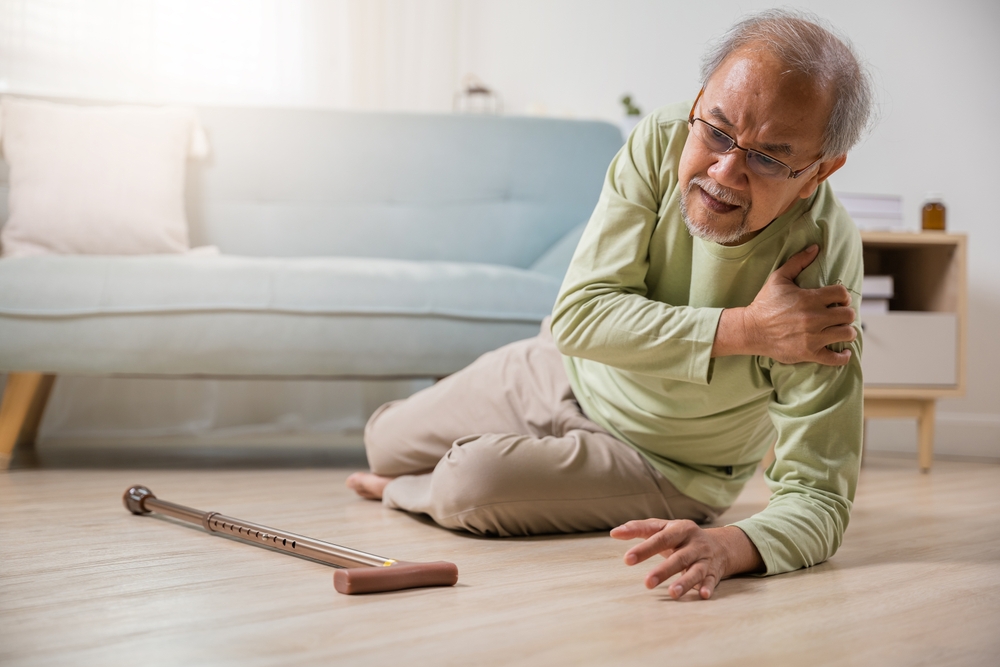Traumatic Brain Injury, or TBI, is a significant health concern, particularly for older adults. While many discussions about head injuries focus on athletes or younger individuals, the risk and consequences of TBI in adults over 65 are uniquely serious. Understanding the common causes, subtle TBI symptoms, and effective TBI prevention strategies is crucial for protecting seniors and ensuring their long-term well-being. This guide offers practical information for older adults and their caregivers on how to reduce risks and recognize the signs of a TBI early. Reach out today to learn more about how we can help you enhance your golden years.
The Unique Risks of TBI in Older Adults
As we age, our bodies change, and these changes can increase both the risk of sustaining a head injury and the severity of its outcome. Seniors are more susceptible to falls, which are the leading cause of TBI in this age group. Factors like balance issues, muscle weakness, vision problems, and chronic health conditions contribute to this heightened risk. Furthermore, age-related brain changes, such as brain atrophy (slight shrinkage), can make an injury more damaging.
Key TBI Prevention Strategies for Seniors
Proactive measures can significantly reduce the likelihood of a head injury. Focusing on TBI prevention is the most effective way to safeguard health and maintain independence.
- Create a Safe Home Environment
Most falls happen at home. Making a few simple modifications can make a world of difference:
- Remove Hazards: Secure or remove tripping hazards like loose rugs, electrical cords, and clutter.
- Improve Lighting: Ensure all rooms, hallways, and staircases are well-lit. Use nightlights to illuminate paths to the bathroom at night.
- Install Safety Devices: Add grab bars in the bathroom (next to the toilet and in the shower) and install handrails on both sides of the stairways.
- Use Non-Slip Mats: Place non-slip mats in the bathtub, shower, and on bathroom floors.
- Manage Health and Medications
Regular health check-ups play a vital role in fall prevention.
- Review Medications: Some medications can cause dizziness or drowsiness, increasing the risk of a fall. Regularly review all prescriptions and over-the-counter drugs with a doctor or pharmacist.
- Check Vision: Get vision checked at least once a year. Wearing the correct prescription lenses can prevent trips and falls.
- Stay Active: Engage in regular physical activity that improves balance, flexibility, and strength. Activities like Tai Chi are particularly effective.
- Practice Safe Habits
Everyday awareness can also contribute to safety.
- Wear Sensible Shoes: Choose sturdy, non-slip footwear that provides good support. Avoid walking in socks or loose slippers.
- Take Your Time: Move slowly and deliberately, especially when getting up from a bed or chair.
Recognizing TBI Symptoms in Seniors
The signs of a TBI in an older adult can be subtle and are often mistaken for normal signs of aging or dementia. Early diagnosis is critical, so it’s important to know what to look for after a fall or blow to the head, even if it seems minor. A consultation with a neurologist is essential if you notice any concerning changes.
Physical Symptoms
- Headaches that worsen or don’t go away
- Dizziness or loss of balance
- Nausea or vomiting
- Fatigue or drowsiness
- Sensitivity to light or sound
- Slurred speech
Cognitive and Emotional Symptoms
- Confusion, memory problems, or difficulty concentrating
- Increased irritability, anxiety, or sadness
- Changes in sleep patterns (sleeping more or less than usual)
- Feeling dazed or “in a fog”
It’s important to note that seniors taking blood thinners are at a much higher risk of bleeding in the brain after a head injury. Any senior on these medications who hits their head should be evaluated by a medical professional immediately, even if they feel fine.
When to Seek Professional Help
If a TBI is suspected, seeking prompt medical evaluation is critical. Your primary care physician may refer you to a neurology clinic for specialized assessment. Early intervention can improve outcomes and prevent long-term complications. By focusing on TBI prevention and being vigilant about recognizing TBI symptoms, we can help seniors stay safe and healthy. Creating a secure living space, managing health proactively, and knowing when to seek medical help are powerful steps in protecting our loved ones from the serious consequences of traumatic brain injuries. Feel free to call HouseCalls Home Care at 718-922-9200 if you or a loved one requires compassionate and competent in-home care services. You can also send an email to us at info@HouseCallshc.org for more information. Our goal is to help you find the best support for your needs. Alternatively, you can register your information here https://yuz88hfiyh7.typeform.com/to/E5thuv5G?typeform-source=statics.teams.cdn.office.net, and we will get back to you.




